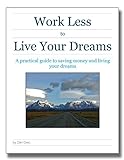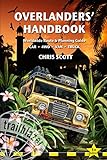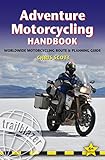Overland Norway Travel
Currency to display:
Contents
- 1 Visiting Norway
- 2 Entering Norway with a Car or Motorbike
- 3 Driving in Norway
- 4 Gas and Diesel price in Norway
- 5 Safety and Security Considerations
- 6 Camping in Norway
- 7 Navigation
- 8 Special Overland Travel interests
- 9 Vehicle Maintenance
- 10 Buy or sell a car or motorbike in Norway
- 11 References
- 12 Helpful External links
Visiting Norway
Give a brief overview of what it's like to visit. How easy is the border, how safe is the country, are there great things to see and do, etc.
Entering Norway with a Car or Motorbike
Correct as of: December 2011
Required Paperwork
(To check if you need a travel Visa for Norway, application instructions and fees see: Norway Visa online application at VisaHQ.com)
List the paperwork required to enter with a vehicle, including number of copies
Process at border
Norway has signed the Schengen Agreement, and passing the border from other Schengen signatories (Denmark, Sweden, Finland) is trouble-free. Vehicles crossing from Russia in the north can expect some scrutiny, but also polite and fairly quick service.
Cost of entry
There are no special costs to enter Norway with a vehicle. Extra fuel in cans may be taxed, and be sure to declare any goods you import.
Norway is not part of the European Union, and that means there are limits on amount of consumer goods allowed to bring freely, especially alcohol.
Permitted length of stay
An EU/EEA/Switzerland citizen can stay without time limit but might require paper work after six months. Other citizens not requiring a visa can stay for 90 days at a time. A vehicle can stay as long as the owner stays, but only up to a year.[1]
Extension of stay
Extensions to the above rule can be granted up to one additional year, maximum two years combined. Apply to the local customs region, within your first year of stay.[1]
Storing a vehicle and temporarily leaving the country
A foreign vehicle shall as a general rule be exported again when the operator leaves the country. It can be left in storage for until 6 weeks per 12 month period without further ado. It can not be used by anyone else while in storage. Extensions to this can be granted by the Customs department, but the the vehicle has to be stored under Customs control.[1]
Exiting with a vehicle
Describe the paperwork requirements and process at the border to exit.
Driving in Norway
Recommended books for Overlanding in Norway
Travel insurance for Norway
World Nomads offer the most flexible Travel Insurance at the best prices for multi-country / multi-year trips. You can buy, extend and claim online, even after you've left home.
Vehicle insurance requirements
3rd party liability insurance is mandatory.
Cost of insurance
State the price of insurance and a time period.
Where to purchase insurance
Describe where insurance can be purchased.
Driving license
Driving permits from other EEA countries are valid in Norway up to one year[2]
Driving side of road
In Norway they drive on the right hand side of the road. RHD vehicles can be legally driven as well.
Mandatory items in vehicle
A safety triangle is mandatory. All vehicles except tractors and construction machinery must have a reflective vest easily reachable from the driver's position.
Campers and recreational vehicles must have a fire extinguisher with a minimum of 2 kg of powder aboard.
Motor vehicles with a maximum allowed weight exceeding 3,500 kg are required to carry at least three chains, of which one must fit the vehicle’s front wheels and two must fit the drive wheels.[3]
Roads
General Road quality
Road quality is generally OK, but upkeep lags other European nations. National roads are often under-dimensioned for the amount of traffic they have to bear.
One way streets are common in Oslo.
Road signs
The quality and amount of road signs are mostly good.
Toll roads
Toll roads are common. The electronic AutoPASS system covers many of them, and an electronic AutoPASS token can be a worthwhile investment if you are travelling extensively in Norway. Otherwise your licence plate will be photographed, and you'll either get an invoice by mail or you can elect to pay at a nearby service station. Look for the "Kr-service" sign.[4]
Tolls for cars are usually around 20-30 NOK, but with some roads costing well over 100 NOK.
Bribery in Norway
Bribing police or traffic officials is basically unheard-of. In 2011 Transparency International listed Norway as the world's 6th least-corrupt nation.[5]
Checkpoints
Checkpoints are rare. Police checkpoints will most often be to catch drunk drivers, and you might be required to submit to a breathalyzer test. Military checkpoints are sometimes encountered when exercises are taking place. Soldiers will probably just wave you on after informing you of special traffic regulations in the area.
Traveling with pets
From EU countries, except Sweden, you are permitted to import your pet animal if it has an identification chip or tattoo, pet passport, has had all necessary vaccinations and is presented to customs on entry to Norway.[6]
From other countries the process is more involved[7]. It is recommended to contact the Norwegian Food safety authority beforehand.[8]
Gas and Diesel price in Norway
Last updated: October 2012
Currency and unit to display:
| Gasoline Grade | Price |
|---|---|
| Unleaded | €2.06 EUR per Liter[9] |
| Diesel | €1.95 EUR per Liter[9] |
Gas and Diesel / Frequency
Fuel shortages are non-existant. Some areas in the far north or crossing the mountains in the south might not have petrol station coverage for maybe 200-300 km, but even that is rare, and signs are usually posted.
Gas and Diesel Quality
Regular European quality petrol and diesel is available. Octane ratings are 95 and 99 octane unleaded. Lead substitutes are still available in service stations if your vehicle require leaded petrol.
Safety and Security Considerations
Driving at night
Driving at night is totally acceptable. Note that some areas might have wildlife crossing the roads, especially at night. They are often signposted.
Vehicle parking
Norway has low crime[10], so street parking is fairly safe. It is still prudent to keep valuables hidden and doors locked.
Special driving considerations
Winter in Norway can quite literally kill the unprepared driver. Brush up on your winter driving skills, equip your vehicle properly and follow the rules.
Some mountainous roads are closed during the winter season. This is a partial list, comprising the biggest roads[11]
| Road | Section | Closes month | Opens month |
|---|---|---|---|
| Ev 69 | Skarsvåg - Nordkapp | 10 | 04 |
| Fv13 | Gaularfjellet | 12 | 05 |
| Fv 51 | Valdresflye | 12 | 04 |
| Fv 55 | Sognefjellet | 11 | 05 |
| Fv 63 | Geiranger - Langvatn | 11 | 05 |
| Fv 63 | Trollstigen | 10 | 05 |
| Fv 252 | Tyin - Eidsbugarden | 10 | 06 |
| Fv 258 | Gamle Strynefjellsveg | 10 | 06 |
| Fv 520 | Hellandsbygd - Røldal | 11 | 06 |
| Fv 886 | Jarfjordfjellet (Vintervollen - Grense Jacobselv) | 11 | 05 |
| Fv 243 | Aurland - Erdal (Lærdal - Sogn og Fjordane) | 11 | 06 |
| Fv 337 | Brokke - Suleskard (Aust-Agder/Vest-Agder) | 11 | 05 |
| Fv 341 | Smelror - Hamningsberg (Finnmark) | 11 | 05 |
| Fv 355 | Melfjellet (Norland) | 11 | 05 |
Do not venture onto roads closed for the season. Snowfall can be sudden, and the worst case scenario is that they find your body when opening the road in the spring.
Bad weather may necessitate convoy driving on certain roads. Vehicles will collect at the start point, and when the number is high enough, the convoy will be dispatched following a snow clearing truck. The Road department's rules for convoy driving are as follows[12]
- Have a torch, towrope and shovel at hand.
- Consider bringing food and warm drinks .
- Bring warm clothes and winter footwear.
- Ventilate your windscreen to prevent icing.
- Use hazard lights.
- Keep the car in front in sight.
- Drive with an even rate of speed and follow the column.
- Don't leave the column or try to turn around.
- If the column stops or you have to stop, don't walk away from the vehicle.
There's always a vehicle of some kind bringing up the rear. The driver of the snow clearing truck and the rear vehicle have radio contact. The column might stop from time to time to check that everybody's present.
Security advisories and information
- Country Specific Information - U.S. Department of State
- Travel Reports and Warnings - Foreign Affairs and International Trade Canada
- Travel advice by country - Foreign and Commonwealth office (U.K.)
- Travel Advice for Norway - Australian Department of Foreign Affairs and Trade
Camping in Norway
Organized camping at camp sites is very common. Camp sites are usually signposted. A national system for classification of camp sites exist, with ratings from one to five stars, depending on standard and facilities[13]:
Classification one star
- Well maintained roads
- Clearly marked entrance with the name of the site and its star classification
- First aid equipment
- Information board showing rules of conduct and fire safety measures
- Daily maintenance
- Postal service
- Clearly marked/signposted installations
- Toilets, washrooms and showers
- Wastewater emptying facilities
- Rubbish bins
- Entrance lit at night
- Well maintained buildings
- Wash basin with hot water
- Electric sockets
- Cooking facilities
- Sink with hot water
Classification two stars
The following must be present in addition to the above:
- Information board showing staff hours and emergency phone numbers
- Lighting in and around service areas
- Hot shower
- Drain for chemical toilet waste
- Sink for laundry with hot water
- Cooking facilities under cover
- Sink with hot water under cover
Classification three stars
The following must be present in addition to the above:
- Staffed: 09.00 - 22.00
- Permanent reception/information desk
- Road lighting
- Separate hot water cubicles
- Nursing room
- Washing machine
- Tumble dryer or drying room
- Playground
- Kiosk
Classification four stars
The following must be present in addition to the above:
- Night-watchman patrols
- Currency exchange
- Soap dispensers and hand driers
- Fast food facility on site or near the site
- Fencing around the site
- Sauna
- Outlet mobile homes
- Toilet for disabled people
- Common room
- Barbecue
- Cafeteria
Classification five stars
The following must be present in addition to the above:
- Watchman's residence on site
- Acceptance of credit cards
- Water supply for caravans
- Drain for caravans
- Grocery shop
- Restaurant
Prices range from around 75 NOK to 150 NOK for car and tent and 150 to 300 for an RV per night. They vary depending on standard and location, and time of year.
Sleeping in the vehicle at rest stops is permitted, but has been an issue from time to time. The Road department has ruled that sleeping in you vehicle, either safely parked by the side of the road or at a rest stop, is permitted because of road safety considerations. The local municipality can overrule this for specific rest stops, but seldom do[14].
There are very rarely reports of robberies or holdups by the roadside.
Wild camping is also permitted, due to the so-called Allemannsretten[15][16]. So you can bring your tent, and basically pitch it anywhere in woods or on the mountains. You can also freely cross forests and beachfront owned by private parties, and you will see no "No trespassing" signs.
Keep in mind that offroad travel with vehicles is illegal, except for maintained roads and the like.
Camping guide books
- NAF Camp - Camping in Norway - automobile owners's association's web site with camping guide
- Camping i Norge (Camping in Norway), a large guidebook which can be ordered at the above link
Drinking water
The tap water is safe to drink in all areas. Nevertheless, bottled water is available to purchase.
Paper maps
Reise Know-How are amoung the best paper maps. Purchase paper maps before arriving in Norway
1:50,000 topographical maps from the Norwegian Geographical Survery are available in many bookstores and travel stores, and are of good quality. They are developen in cooperation with the armed forces, and have a military designation of M711. They have a 1 km grid and are suitable for use in conjunction with a GPS receiver.[17]
A new civilian map series is being introduced gradually, finishing in 2014. They will be similar to the old 1:50k series, but will be printed on water and tear resistant "paper" and will contain four times as big an area per map. When the whole of the country is covered in 2014, the military M711 series will not be sold to civilians any more.[18]
Road atlases are availabla at every service station and bookshop.
GPS Maps of Norway
- OpenStreetMap: Appears to have good coverage.[19]
- Garmin: Lists coverage as "detailed".[20]
- TomTom: Lists coverage as "detailed".[21]
GPS co-ordinates for camping, propane, gas, repairs, etc. in Norway
- iOverlander is a website and iPhone application designed by Overlanders, for Overlanders. It contains GPS co-ordinates and reviews for camping, hotels, propane, water, mechanics, borders and much more.
- LPGguiden.no, a guide to LPG filling stations for vehicles (click on the Norwegian flag)
Link to sites that have a list of GPS co-ordinates (or directions) for camping locations (including "wild" campsites), propane filling, gas stations, repair shops, places of interest, etc.
Special Overland Travel interests
North Cape is a popular end destination for overlanders. It has been both the start and destination for several Cape-to-Cape expeditions.
The Atlantic Ocean Road is perhaps the most popular of the National Tourist Routes (Nasjonale turistveger) in Norway.
Vehicle Maintenance
Dealers
4x4s / Trucks
- Toyota Global Dealer Locator
- Land Rover International Dealer Locator
- Mercedes Benz International (select country on bottom right)
- Jeep International site locator
Motorbikes
Local Garages
- Gautes Garage is an independent garage in Oslo run by a Land Rover enthusiast. Will work on older vehicles and do outside-the-box type work.
Buy or sell a car or motorbike in Norway
Buy
Describe how a foreigner can buy a vehicle.
List any difficulties or limitations on where the vehicle can be driven.
Sell
Describe how a foreigner can sell a foreign-plated vehicle, or list not possible.'
References
- ↑ 1.0 1.1 1.2 Lovdata: FOR 1991-06-20 nr 381: Forskrift om avgiftsfri innførsel og midlertidig bruk av utenlandsregistrert motorvogn i Norge (the relevant law, no English translation available)
- ↑ Statens Vegvesen: Permission to drive and driver training in Norway
- ↑ Trucker's guide to driving in Norway
- ↑ AutoPASS and tool roads in Norway
- ↑ Transparency Internatinal: Corruption Perceptions Index 2011
- ↑ Norway.no: FAQ
- ↑ Lovdata: FOR 2004-07-01 nr 1105: Forskrift om dyrehelsemessige betingelser for ikke-kommersiell transport av kjæledyr
- ↑ Norwegian Food safety authority
- ↑ 9.0 9.1 World petrol prices, gas prices, diesel prices|MyTravelCost.com
- ↑ Nationmaster.com: Crime Statistics > Car thefts (most recent) by country
- ↑ Statens Vegvesen: Vinterstengte veger
- ↑ " Statens Vegvesen: Råd for kolonnekjøring
- ↑ VisitNorway.com: Camp site classification in Norway
- ↑ Blakseth RV Rental
- ↑ Wikipedia: Freedom to roam#Norway
- ↑ TurPåHjul: Offroading and travel in Norway
- ↑ Statens Kartverk 1:50,000 M711
- ↑ Statens Kartverk: Papir/plastkart - 1:50 000/M711
- ↑ OpenStreetMap wiki: Norway
- ↑ Garmin.com: On the Road Maps
- ↑ TomTom Maps
Helpful External links
- TurPåHjul, Norwegian-language overlanding forum with a small English subsection
- VisitNorway.com - the official travel guide to Norway
- Norway: Visa and Passport requirements | World Travel Guide
- Health Information for Travelers to Norway - Center for Disease Control and Prevention
- Norway travel guides at wikivoyage
- Norway - Wikipedia, the free encyclopedia







